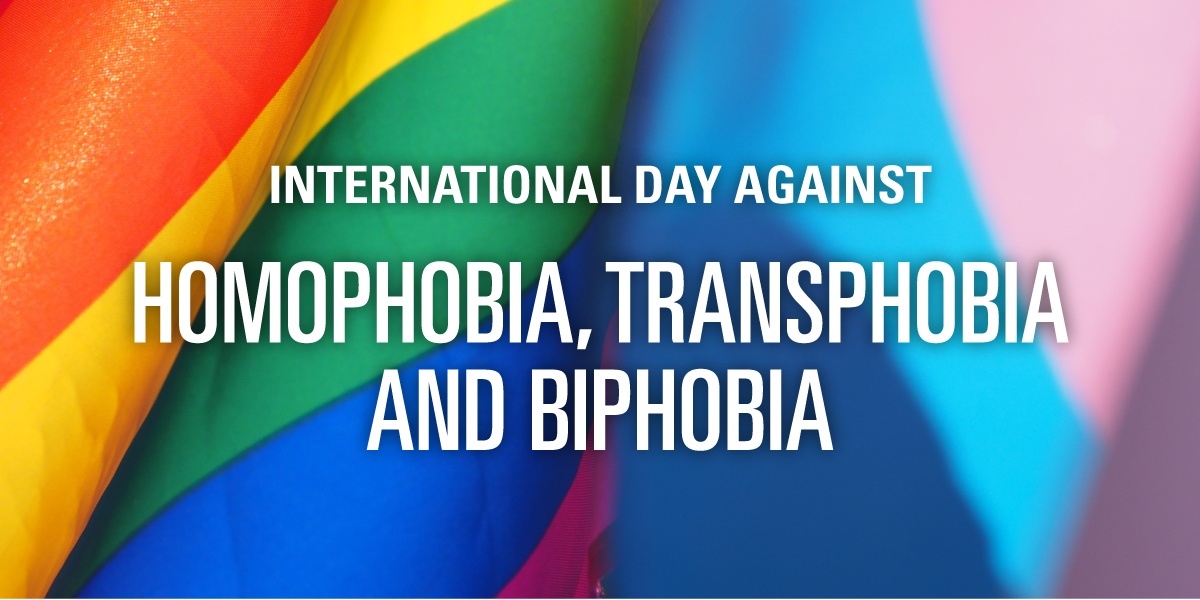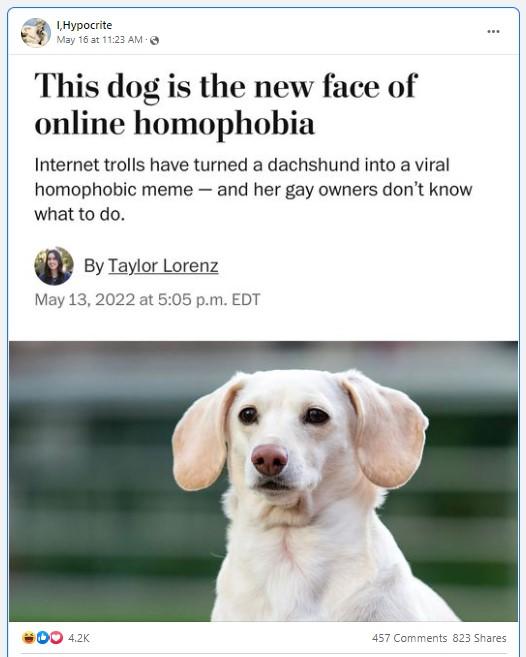Homophobic eyes is a phrase that encapsulates the judgmental and prejudiced gaze often directed toward the LGBTQ+ community. In today's world, where inclusivity and acceptance are increasingly emphasized, it is crucial to address this form of discrimination that persists in various societal spaces. The term signifies the pervasive prejudice that affects individuals' mental health, self-esteem, and overall well-being. Understanding the origins and impact of these judgmental perceptions is key to fostering a more inclusive and supportive environment for all.
The concept of "homophobic eyes" is not merely a metaphor but a tangible reality for many individuals who identify as LGBTQ+. These eyes often symbolize the silent judgments, microaggressions, and systemic biases that individuals face daily. By unpacking this concept, we can gain a deeper understanding of how such prejudices manifest and affect individuals on both personal and societal levels. Recognizing these challenges is the first step toward dismantling them and promoting equality.
As society continues to evolve, it is essential to challenge and change the narratives that perpetuate discrimination. This article aims to shed light on the concept of "homophobic eyes," exploring its roots, effects, and potential solutions. Through expert insights and real-world examples, we will delve into the complexities of this issue and provide actionable steps toward creating a more inclusive world.
Read also:Brian Regan A Comedic Genius Who Redefined Standup Comedy
What Are "Homophobic Eyes"?
When we talk about "homophobic eyes," we refer to the judgmental and prejudiced perceptions that some individuals direct toward LGBTQ+ people. These eyes represent the subtle yet pervasive forms of discrimination that persist in our society. Such perceptions can manifest in various ways, from derogatory remarks to exclusionary practices, all of which contribute to a hostile environment for those affected.
Understanding "homophobic eyes" requires an examination of the cultural, social, and psychological factors that fuel such prejudice. It is essential to recognize that these biases are not innate but rather learned behaviors shaped by societal norms and misinformation. By addressing the root causes of these prejudices, we can work toward dismantling them and fostering a more inclusive society.
How Do "Homophobic Eyes" Affect Mental Health?
The impact of "homophobic eyes" extends beyond mere discomfort; it significantly affects the mental health and well-being of LGBTQ+ individuals. The constant exposure to judgmental gazes and discriminatory attitudes can lead to anxiety, depression, and low self-esteem. These mental health challenges often stem from the internalization of societal biases and the fear of rejection.
Moreover, the psychological toll of living under the scrutiny of "homophobic eyes" can manifest in various ways, including social withdrawal and self-isolation. It is crucial to acknowledge these effects and provide support systems for those affected. By promoting mental health awareness and offering resources, we can help individuals overcome the challenges posed by such prejudices.
Why Should We Challenge "Homophobic Eyes"?
Challenging "homophobic eyes" is not just a moral imperative but a necessary step toward creating a more equitable society. By confronting these prejudices, we can dismantle the barriers that prevent individuals from living authentically and freely. This challenge involves educating others, advocating for change, and supporting those who face discrimination.
Addressing "homophobic eyes" also means fostering dialogue and encouraging empathy. It is essential to engage in open conversations about the experiences of LGBTQ+ individuals and the impact of prejudice. Through these discussions, we can build bridges and promote understanding, ultimately leading to a more inclusive world.
Read also:Melanie Hamrick A Journey Through Dance And Life
What Can We Do to Combat "Homophobic Eyes"?
Combatting "homophobic eyes" requires a multifaceted approach that involves education, advocacy, and community support. By implementing strategies that challenge prejudice and promote inclusivity, we can create environments where everyone feels valued and respected. Below are some actionable steps:
- Engage in educational programs that promote awareness and understanding of LGBTQ+ issues.
- Support advocacy groups working to dismantle discriminatory practices.
- Encourage open dialogue and empathy within communities.
Is It Possible to Change "Homophobic Eyes" Perceptions?
Changing perceptions rooted in prejudice is undoubtedly challenging, but it is not impossible. Through consistent efforts and a commitment to education, we can shift societal attitudes and reduce the prevalence of "homophobic eyes." This change begins with challenging stereotypes and promoting positive representations of LGBTQ+ individuals in media and culture.
It is essential to recognize that change is a gradual process that requires patience and persistence. By working together and supporting one another, we can create a world where judgmental gazes are replaced with acceptance and understanding.
How Can We Support Those Affected by "Homophobic Eyes"?
Supporting those affected by "homophobic eyes" involves providing emotional and practical assistance. This support can take various forms, from offering a listening ear to connecting individuals with mental health resources. Below are some ways to provide meaningful support:
- Listen actively and validate their experiences without judgment.
- Offer resources such as counseling services and support groups.
- Advocate for policies that protect LGBTQ+ rights and promote inclusivity.
Biography of a Prominent Advocate Against Homophobia
| Name | Ellen DeGeneres |
|---|---|
| Date of Birth | January 26, 1958 |
| Place of Birth | New Orleans, Louisiana, USA |
| Profession | Comedian, Television Host, Actress, and Advocate |
| Notable Achievements | First openly gay host of a prime-time network TV show, multiple Emmy Awards, and GLAAD Media Awards. |
How Has Ellen DeGeneres Fought Against "Homophobic Eyes"?
Ellen DeGeneres has been a vocal advocate against "homophobic eyes" and discrimination in all forms. Through her platform, she has used humor and compassion to challenge societal norms and promote inclusivity. Her openness about her sexual orientation and her commitment to LGBTQ+ rights have inspired millions worldwide.
DeGeneres' influence extends beyond entertainment, as she actively supports organizations working to combat prejudice and promote equality. By sharing her experiences and amplifying the voices of others, she continues to make strides in dismantling the barriers posed by "homophobic eyes."
What Lessons Can We Learn from Advocates Like Ellen DeGeneres?
Advocates like Ellen DeGeneres teach us the importance of authenticity, courage, and resilience in the face of adversity. By embracing who they are and standing up against prejudice, they inspire others to do the same. Learning from their experiences, we can gain valuable insights into the power of advocacy and the impact of individual actions.
Ultimately, the fight against "homophobic eyes" requires collective effort and a commitment to change. By following the examples set by advocates like Ellen DeGeneres, we can work toward a world where everyone is treated with dignity and respect.
Conclusion: Toward a World Without "Homophobic Eyes"
Addressing "homophobic eyes" is a critical step toward creating a more inclusive and equitable society. Through education, advocacy, and community support, we can challenge the prejudices that perpetuate discrimination and promote understanding. By recognizing the impact of these judgmental gazes and working together to dismantle them, we can build a world where everyone feels valued and respected.
The journey toward inclusivity is ongoing, but with determination and compassion, we can make significant strides. Let us commit to challenging "homophobic eyes" and fostering environments where diversity is celebrated and equality is the norm.
Table of Contents
- What Are "Homophobic Eyes"?
- How Do "Homophobic Eyes" Affect Mental Health?
- Why Should We Challenge "Homophobic Eyes"?
- What Can We Do to Combat "Homophobic Eyes"?
- Is It Possible to Change "Homophobic Eyes" Perceptions?
- How Can We Support Those Affected by "Homophobic Eyes"?
- Biography of a Prominent Advocate Against Homophobia
- How Has Ellen DeGeneres Fought Against "Homophobic Eyes"?
- What Lessons Can We Learn from Advocates Like Ellen DeGeneres?
- Conclusion: Toward a World Without "Homophobic Eyes"


